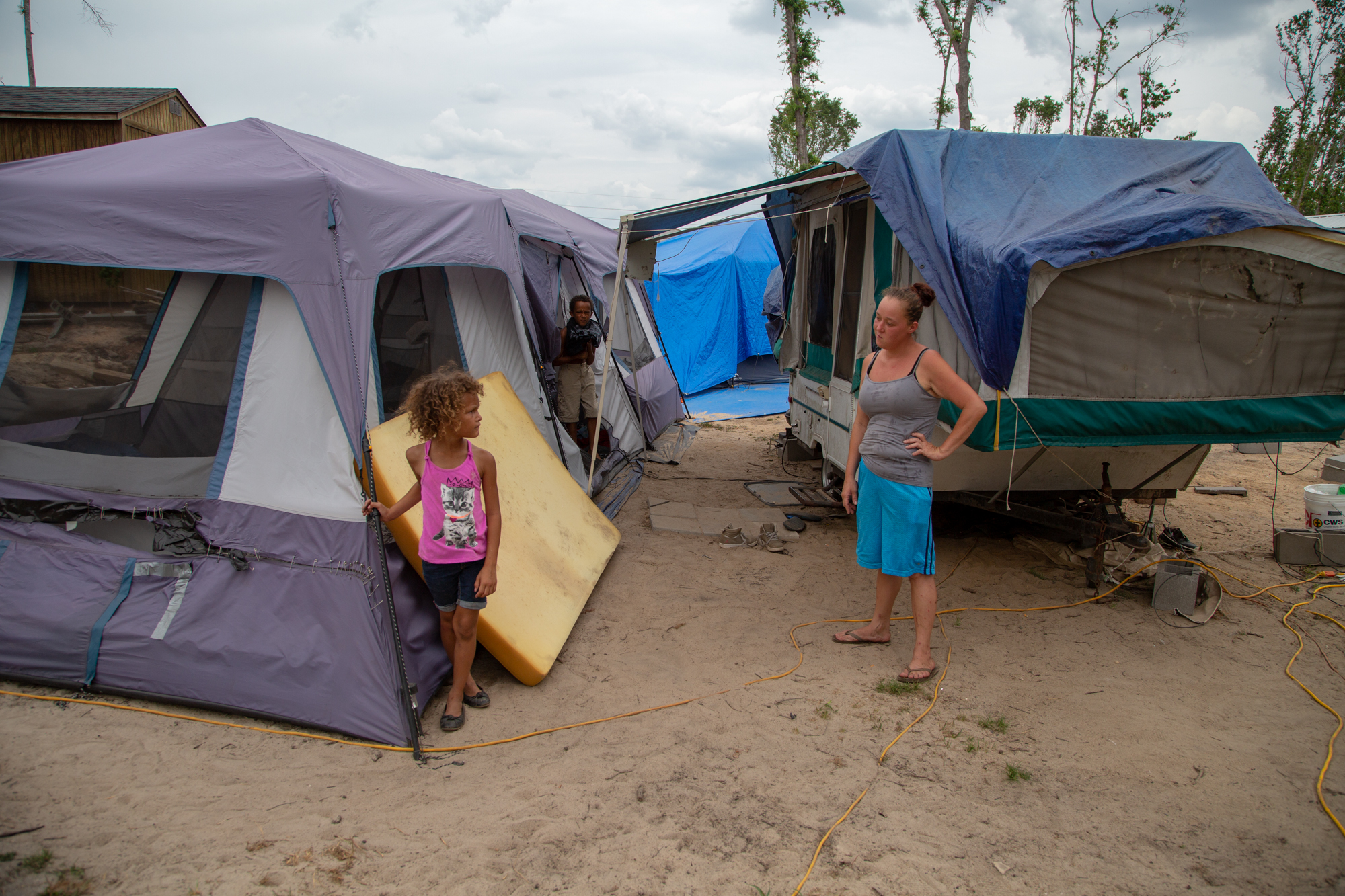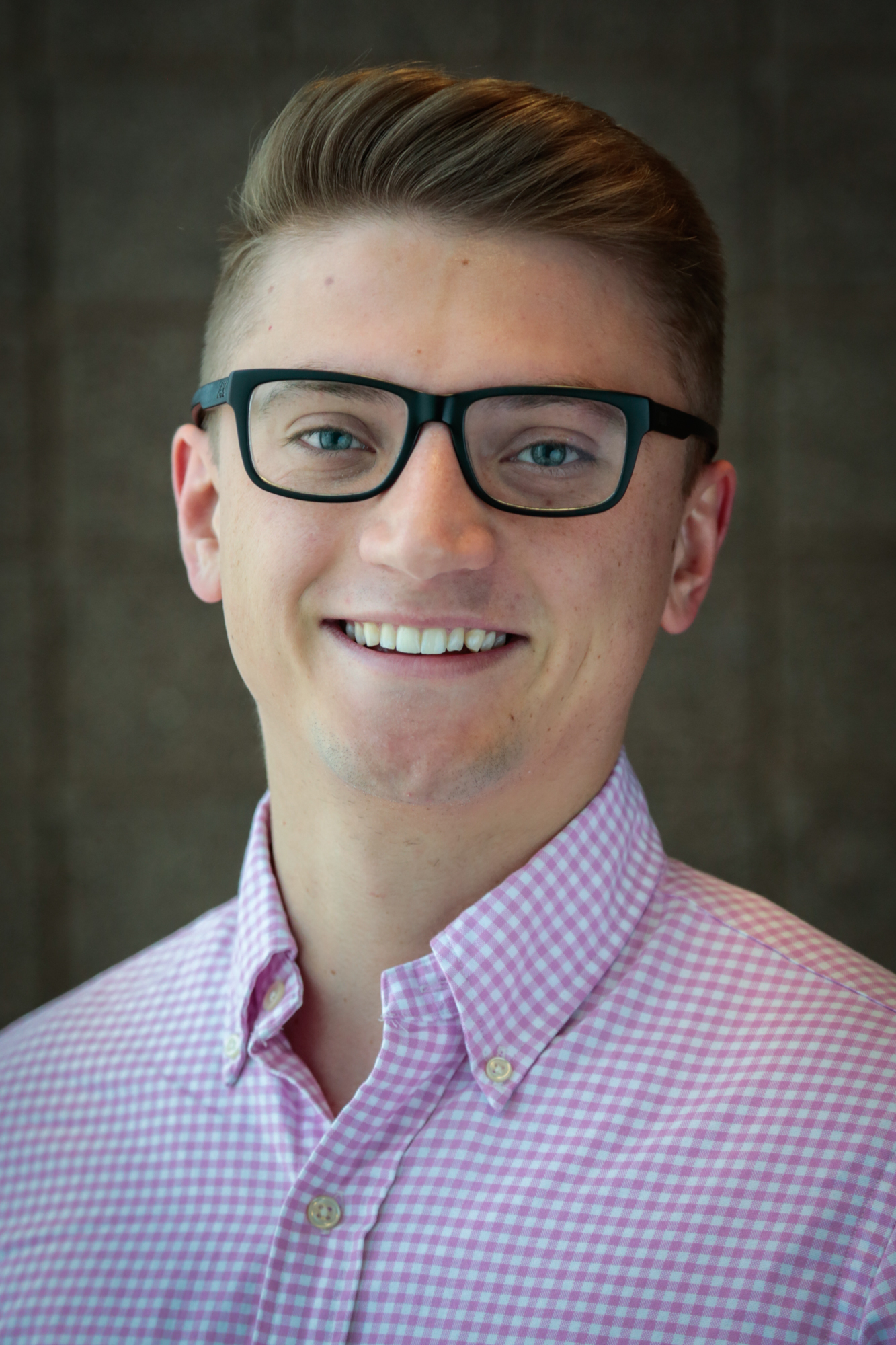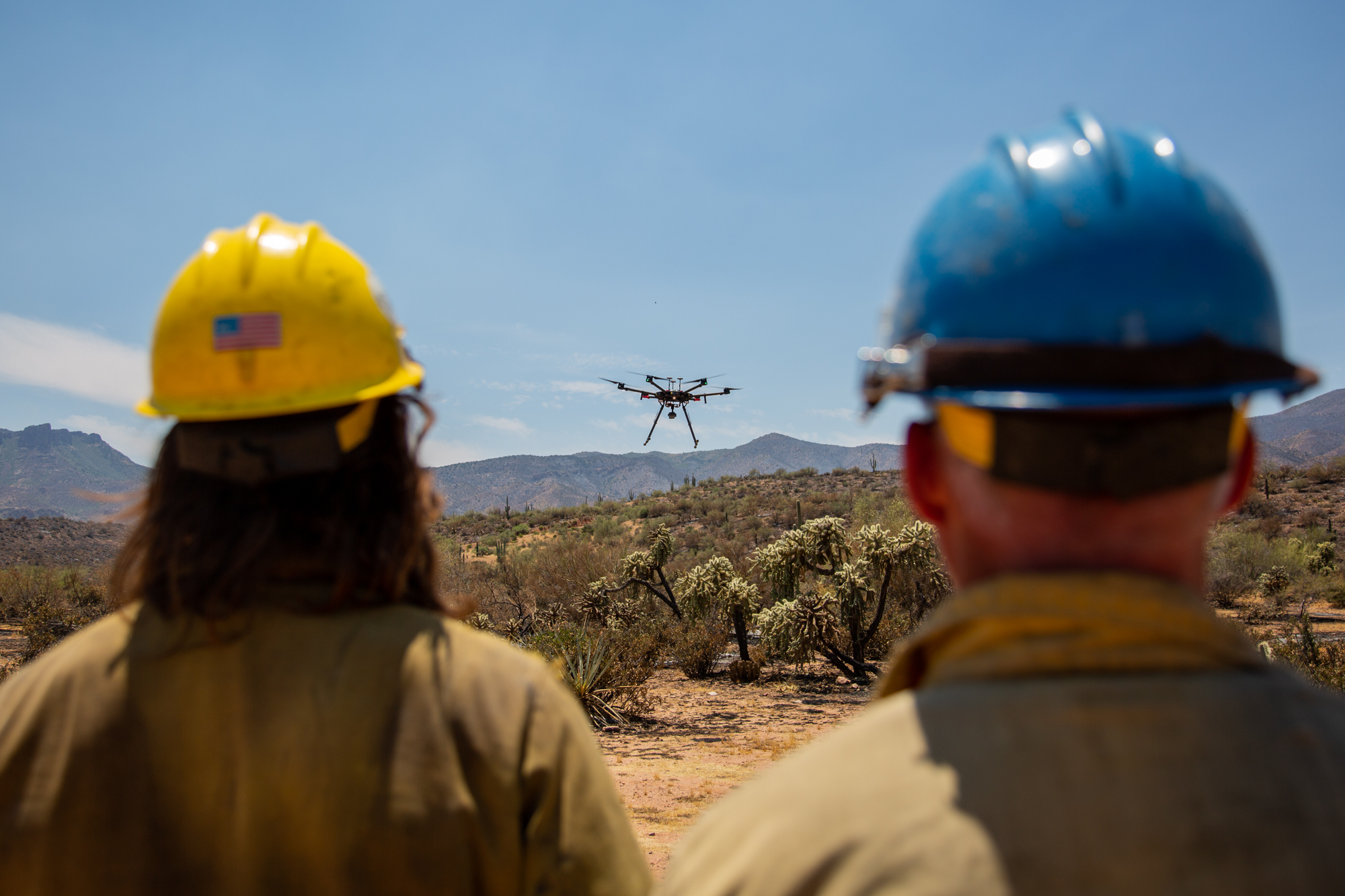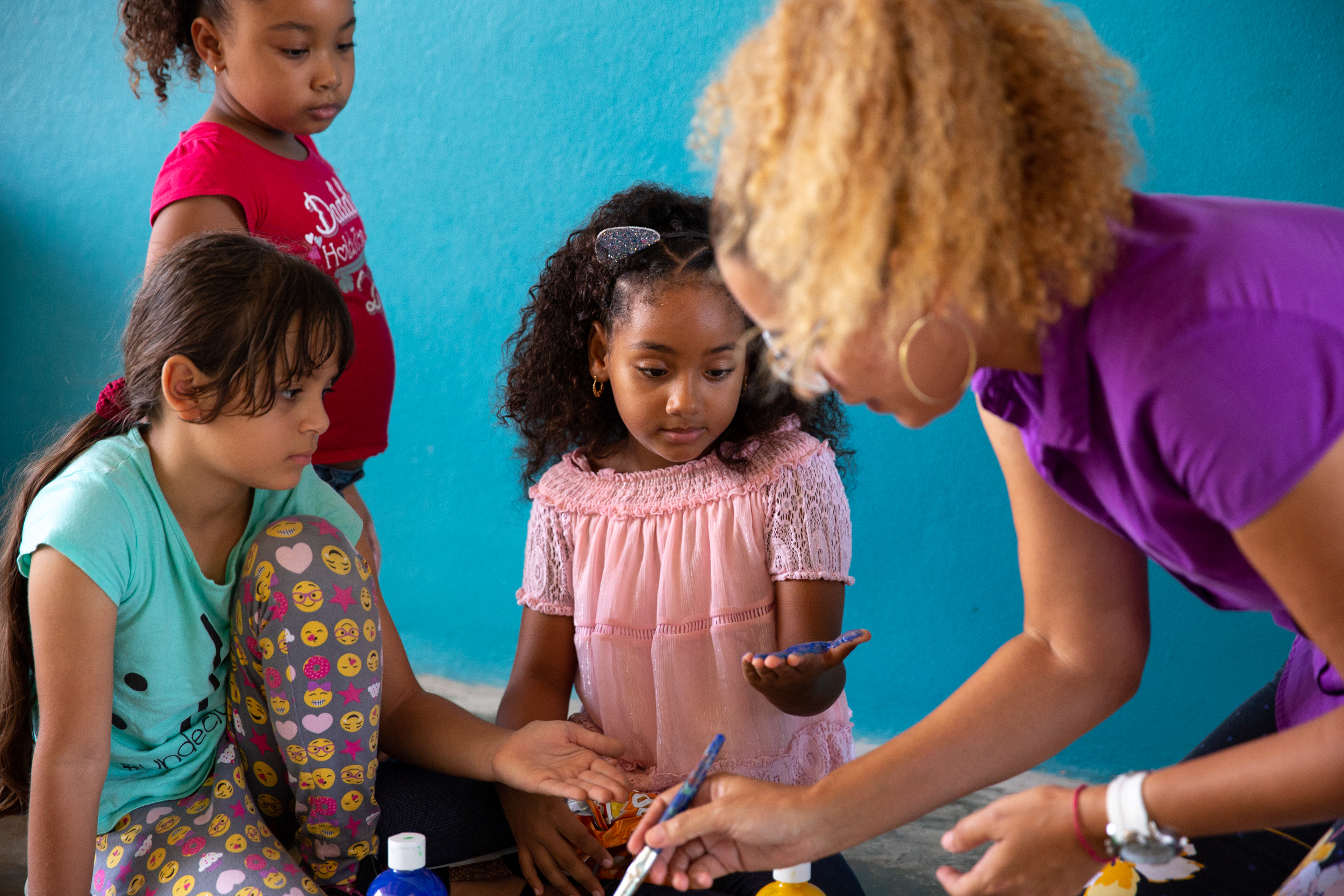The decision to open their five-acre backyard in Youngstown, Florida to house victims of Hurricane Michael was a no-brainer for Shelly Summers and her family.
“This is not us just because of Hurricane Michael,” Summers said. “We’ve never lived in the house by ourselves. We’ve always been helping people.”
Summers and her husband, Sam, built their house 20 years ago on the Florida Panhandle, located 25 minutes outside of Panama City. When Hurricane Michael hit their community in October, the Summers and their 7-year old daughter, Gabby, instantly opened their property to more than 50 people who were displaced by the Category 5 storm, something they’ve done many times before.
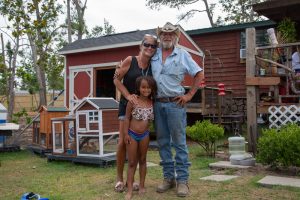
Now, eight months and counting since Michael hit, the number of residents fluctuates weekly as families save enough money to move out or new families move in. When News21 visited in early June, 22 people were temporary residents.
When people arrive at what Summers refers to as a “tent community,” most have few possessions on them, if they have any at all. Summers noted that some even lack basic toiletries such as a toothbrush.
“Our goal is to help them get on their feet [and] save their money, so when the time does come, whenever they get the housing available, they have the money to start over,” Summers said. “It’s tedious, but it’s worth it.”
Residents are housed in tents, which Summers admits is not ideal, but she ensures each tent is equipped with air conditioning, electricity and real mattresses in an attempt to try and provide a sense of normalcy. Residents are granted full access to the main house to watch television or cool off, and every night there is a home cooked meal, a combined effort between the temporary residents and Summers that adds a true community feel.
The Summers do all this without charging a penny. While a few local churches donate food and supplies to help Summers provide for her community, the rest of the costs and sacrifices fall on Shelly and her husband.
“We have spent a lot of money on this, but that’s OK, and we would do it all over again,” Summers said.
The Summers attribute their “strict community morals, values and standards” to their individual upbringings.
Although residents are not required to pay rent, maintaining a community with this many people and over 100 animals — mostly rabbits — requires assistance, which is why Shelly asks her residents to give back by helping around the property.
“Whether it’s pick up trash or vacuum the house or help put the donations up, do something. You have to do something. And for the most part everybody pretty much does chip in,” she said.
Shelly has just three rules for residents: no drinking, no drugs and no drama. Failure to comply with those three will result in eviction from the tent community.
“My neighbors will tell you we’re very quiet. [They] didn’t even know we were doing this until the news started showing up,” Summers said.
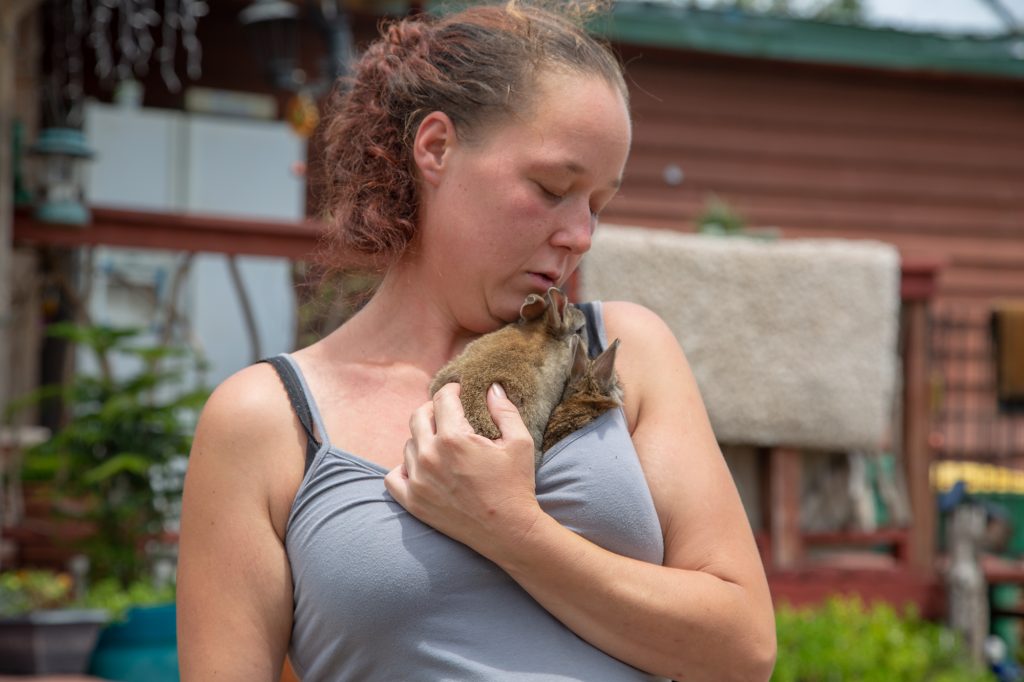
Amanda Bohn said she and her husband and their three children — two sons and one daughter — arrived in March, and they will continue to stay until they can afford to put themselves in a home.
Bohn did not want to ask for help when she and her family got evicted from their home after Hurricane Michael, but she decided that living on the Summers’ property was better than living in an RV on a vacant lot.
“Shelly is a blessing for what she is doing,” Bohn said. “A lot of us would probably be sleeping under a bridge or under some trees somewhere.”
In just a few months, Shelly has had several success stories, including a family who recently relocated to West Virginia. But as people continue to struggle and recover from the hurricane and its aftermath, the Summers family will welcome them into their home, no matter the cost.
“The ultimate goal is to get them in their own permanent housing,” Summers said. “But until that’s available, we’ll just keep doing what we’re doing.”
Peter Nicieja is a senior at DePauw University pursuing a degree in music with a second major in communication. Nicieja has held various leadership positions with student media organizations, including programming director for DePauw’s radio station, WGRE, news editor for The DePauw newspaper, and producer for D3TV, the campus TV station. Nicieja also has a background in filmmaking and graphic design.
